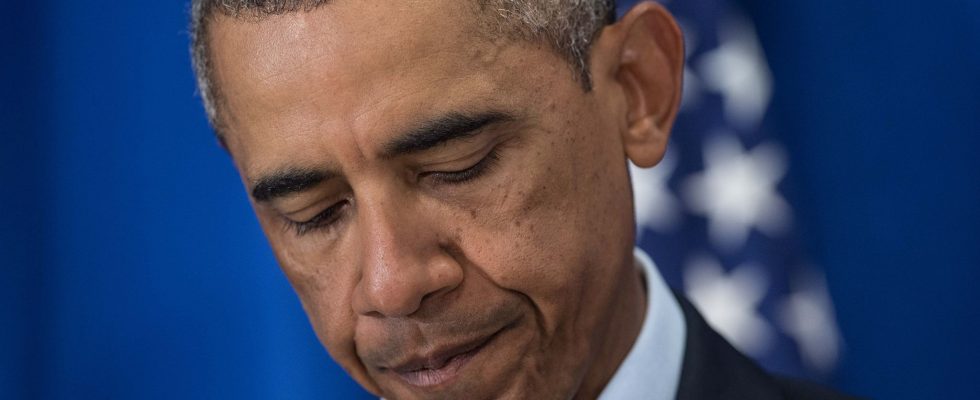Recall of facts. In the spring of 2011, what has been sweeping the Arab world for several months now begins in Syria, a vast peaceful protest movement soon to be called the Arab Spring. Dictator Bashar al-Assad immediately overreacted with massive and extreme violence that would soon, in less than a decade, cause around half a million people to be killed and several million refugees and exiles. Among the most appalling “anti-terrorist” weapons, it employs nerve gas; as of 2011, a number of testimonies supported by several international investigations report repeated attacks in civilian areas (particularly in Ghouta, east of Damascus). However, among the belligerents, only the Syrian army (notably the 4th armored division of Bashar’s brother, Maher) has stocks of this highly toxic substance derived from the terrible sarin gas – the use of which is strictly prohibited by the Geneva Conventions. – and artillery capable of propelling it.
Almost all heads of state condemn, including the most powerful of them, Barack Obama. As early as December 2012, he had solemnly warned that a recurrence would constitute “a red line” and that the United States would then intervene strongly. However, in April and especially in August 2013, new deadly gas attacks struck the population. Faced with this established fact, he threatened again, put the 6th Mediterranean Fleet on alert, solicited the support of his French and British allies (only the former were present), then… gave up striking to everyone’s surprise! It’s just one deus ex machine suddenly intervened in the person of the irremovable Russian Minister of Foreign Affairs, Sergei Lavrov: subject to American abstention, Moscow undertakes to neutralize and evacuate the stocks of Syrian nerve gases, which we learn in passing that they finally existed despite Russian and Syrian denials! A few days after the agreement, a Russian convoy allegedly takes the lethal substance to an unknown destination.
Lesson and consequences. In geopolitics, a show of force is worth force. First, Obama had freely made his martial announcement in 2012. Then, he had full latitude and ease to carry out his threat. Third, it was legitimate, both morally and legally. Finally, the regime he threatened with strikes was as much a murderer of Syrians as it was harmless to American interests. And yet, Gulliver lay down in front of the Lilliputian who had boldly challenged him… In terms of credibility, vis-à-vis adversaries but also allies, we understand how disastrous such a renunciation under these four conditions can be.
And Putin understood that America was in decline
And he was. Assad stayed in power with a bluster, Indo-Pacific allies doubted Washington, and some were tempted to get closer to Beijing; and, much worse, Putin thought he understood that America was definitely in decline. Let us take as concordant indices, on the one hand, the massive appearance of Russian fighter bombers precisely after the abandonment of his “red line” by Obama, on the other hand, the coup in Ukraine in 2014.
In his memoirs (A promised land, Fayard, 2020), the former American president defends himself by arguing that he did not want any stalemate or American military losses. Fallacious argument: a few missiles propelled from its ships on Syrian military bases, even the presidential palace, would not have cost lives among the GIs. Let us add that the loss of credibility was all the greater because Putin will have rolled his counterpart in the flour: indeed, while the deadly gas was supposed to have been evacuated from Syria, it was again used (but more sparingly) during the following year.
A misdirection that should encourage us to be more cautious and shrewd in the face of authoritarian regimes, especially when they maintain ultranationalist representations and a clearly imperial objective. In 2013, Putin didn’t care whether his demiurge ally Assad used prohibited weapons or not; on the other hand, he knew how to rush into the breach opened by an Obama who was perhaps as naive as a Roosevelt had been in his time when faced with Stalin, the incarnation of cynicism. We can legitimately assume that millions of Ukrainians are now paying for this very serious error.
* Frédéric Encel is an essayist and geopolitical scientist
